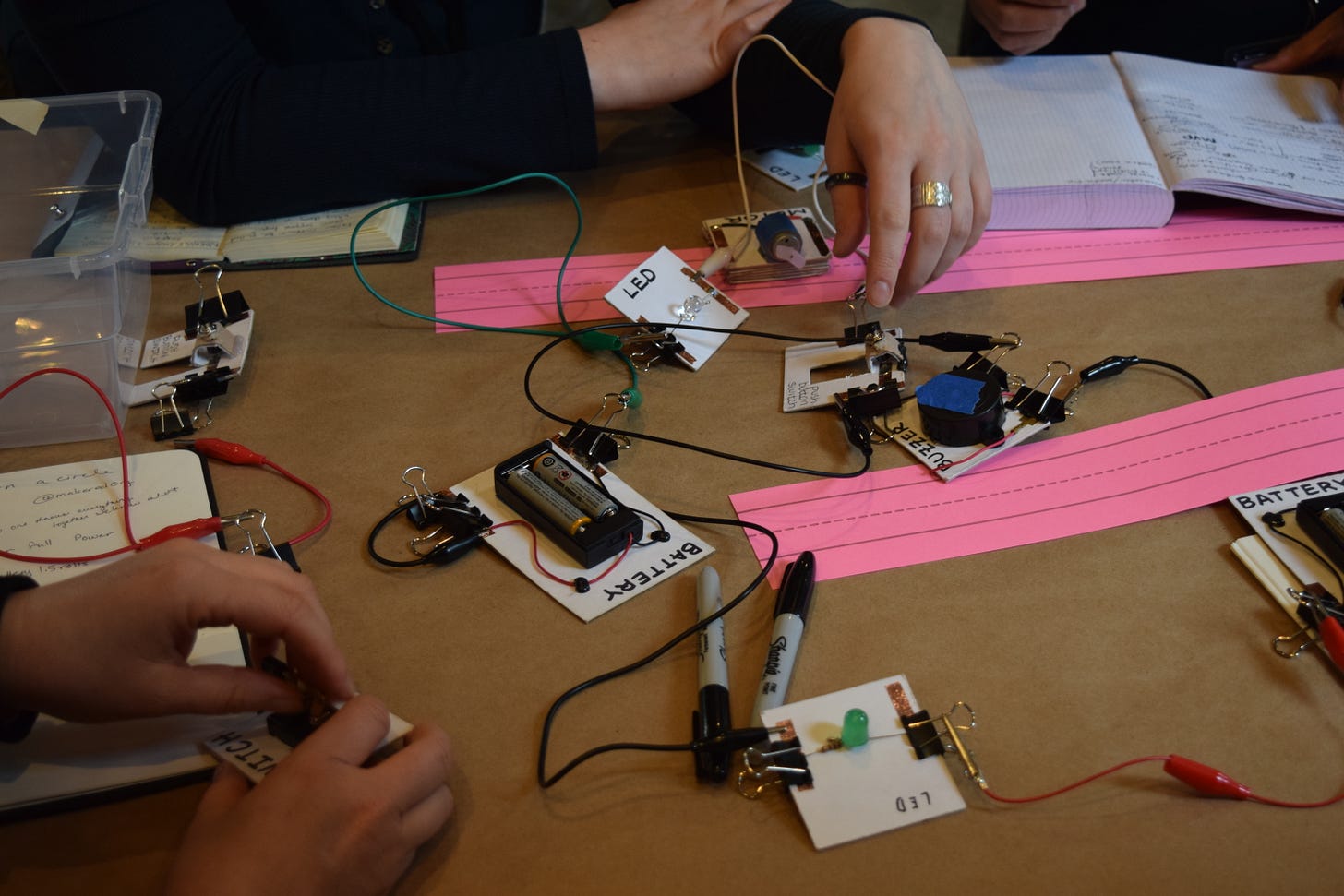Enthusiasts first, Experts second
Mark Allen on Workshops and Teachers
The title of this post comes from a sentence in a handbook on workshops written by Mark Allen for the Machine Project, an avant-garde gallery space in Pasadena known for organizing cool DIY workshops. Mark writes that he has learned to look first for enthusiasm in teachers, more than subject-matter expertise. It’s a good thing to consider when choosing adults to lead workshops, makerspace or maker programs.
What we look for in a teacher is a love for their subject and an enthusiasm for sharing that love with other people. The specific pedagogical approach or level of expertise is not as important as the ability to help participants overcome their natural resistance to new ideas and unfamiliar environments. We want Machine workshop students to leave with the confidence and enthusiasm to continue learning on their own.
Some of our best teachers and presenters are enthusiasts first and experts second. Under the right circumstances, a workshop run by teacher whose expertise is only a step or two ahead of the participants can be fun and illuminating. This helps the instructor to bring empathy to the process—it’s easier to imagine what a beginner needs to know if you were recently a beginner yourself.
In addition, by taking a chance on artists without much teaching experience, we’re building a talent pool and enriching the ecosystem beyond our doors. It demands a bit of extra work and support on our end (i.e., time and patience), but we think it’s worth it.
What I found was what makers had in common was not their expertise or area of interest; it was their enthusiasm. They were excited about what they were doing and wanted to share it with others. Their enthusiasm for learning and doing encouraged others to become learners and doers as well. What is true about makers is true about maker educators.
Workshops have become an important part of most community makerspaces. It can be a reliable source of revenue as well as a recruitment strategy. Workshops are distinct from courses in that they typically take place in a single session and have some kind of tangible outcome — something you get to make. I would like to see more school makerspaces offer workshops as a way of introducing new capabilities in a social context.
Workshops also are an opportunity to bring in other talented people, like artists. Mark Allen, who is an associate professor of Art at Pomona College, says that workshops multiply the number of people who “can do interesting things” and contribute to creating community.
As artists, one of our goals is to make our world a more interesting place (right?), so the more people who know how to do interesting things, the better. Workshops are a way of multiplying the culture’s ability to do those interesting things. In a circular, slightly selfish way, sharing knowledge and skills increases the odds that there will be lots of wonderful art for you to look at.
Also, I think there is a basic, primal human desire to bring people together. I don’t want to overstate this—workshop participants probably won’t become best friends who stage annual reunions with cake and songs—but time spent learning together can foster a sense of community. Workshops, in their modest way, contribute to a more humane civic culture.



